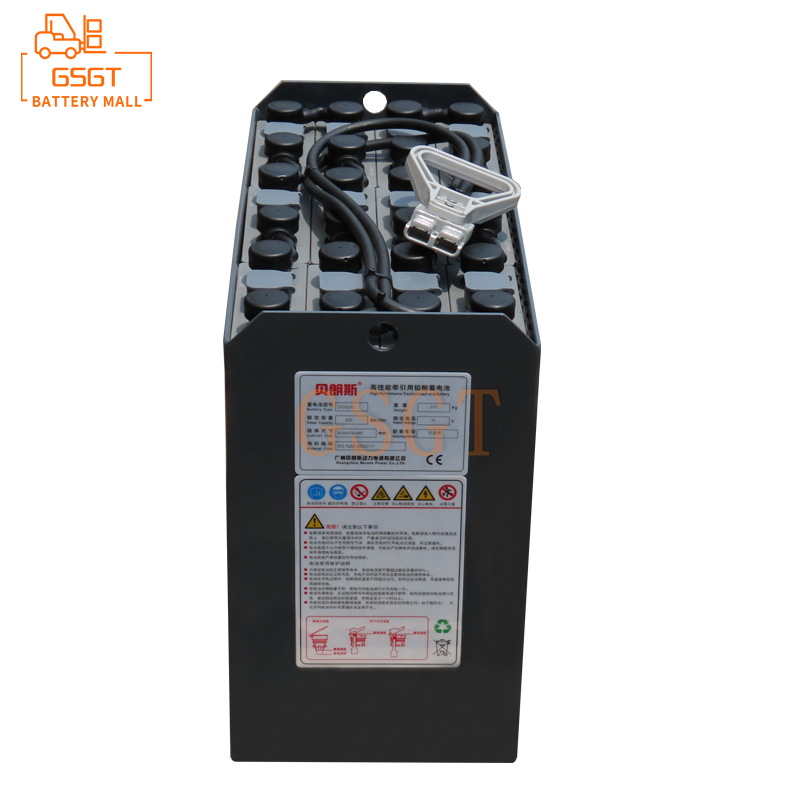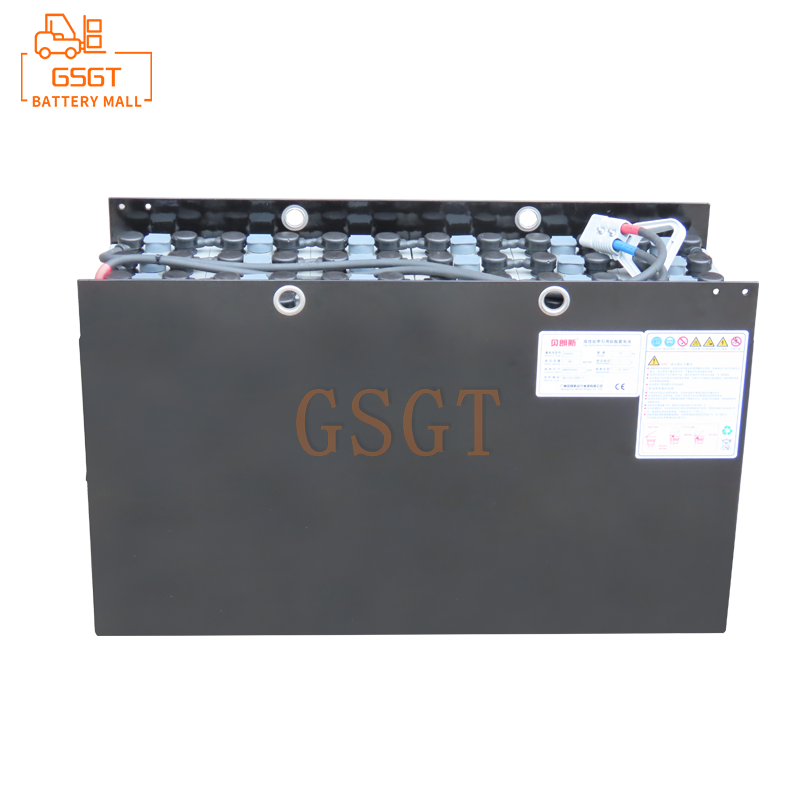Time:2025-07-16 15:43:16
Browse:614
In industrial production, forklifts, as important material handling equipment, their stable operation is directly related to the efficiency of logistics turnover. As the "heart" of forklifts, the performance and lifespan of lead-acid batteries in forklifts largely depend on daily maintenance, among which regular water replenishment is one of the key links. Many users often neglect this operation, not realizing that it will bring many hidden dangers to the battery and the operation of the forklift.
The working principle of lead-acid batteries for forklifts is based on internal chemical reactions. During the charging and discharging process, the moisture in the electrolyte will gradually decrease due to electrolysis and evaporation. The electrolyte is a mixture of sulfuric acid and water in a certain proportion. The loss of water will disrupt the balance of the electrolyte and thereby affect the normal operation of the battery.
The influence of regular water replenishment on battery life
The plates of lead-acid batteries are the core components for converting electrical energy, and their condition directly determines the service life of the battery. When a battery is short of water, the electrolyte level will be lower than the plates, exposing them to the air and making sulfation very likely to occur. After the plates are vulcanized, the charging and discharging efficiency of the battery will drop significantly. A battery that could have been used for 3 to 5 years may need to be replaced every 2 years, which undoubtedly increases the equipment cost of enterprises.
The impact of regular water replenishment on forklift performance
The operational efficiency of forklifts is closely related to the capacity of the battery. If a storage battery is chronically short of water, the concentration of the electrolyte will increase, internal chemical reactions will be inhibited, and the capacity of the battery will significantly decrease. In actual operation, it is manifested as a weakened endurance of forklifts. What was originally capable of working for 8 hours on a single charge may only be able to operate for 5 to 6 hours after running out of water. Frequent charging will disrupt the normal operation plan and reduce the efficiency of logistics handling. Especially during peak operation hours, if forklifts suddenly stop due to insufficient power, it will seriously affect the production progress.
Regular water replenishment is related to work safety
When a battery is charged in a state of water shortage, it is prone to overheating. Due to insufficient moisture, the heat generated by the electrolytic reaction cannot be dissipated in time through water evaporation. The increase in temperature may cause the electrolyte to boil, and even lead to deformation and leakage of the battery casing. The leaked electrolyte contains sulfuric acid and is highly corrosive. It may damage other parts of the forklift. What's more serious is that if it comes into contact with human skin, it can cause burns. In addition, high temperatures may also cause internal short circuits in the battery, posing safety hazards such as fire and explosion, which threaten the lives of operators and the property of the enterprise.
Frequently Asked Questions
Question: What kind of water should be used to replenish the lead-acid battery of a forklift?
Answer: Distilled water or deionized water must be used. Tap water, mineral water, etc. must never be used. Because tap water and mineral water contain minerals such as calcium and magnesium, these minerals will form precipitates inside the battery, adhere to the plates, affect the chemical reactions of the plates, reduce the performance of the battery, and even cause damage to the plates.
Question: How to determine if the lead-acid battery of a forklift needs water replenishment?
Answer: It can be judged by observing the liquid level scale line of the battery. Under normal circumstances, the electrolyte level should be 10 to 15 millimeters higher than the plates and within the upper and lower limits of the liquid level scale line. If the liquid level is below the lower limit mark, it is necessary to replenish water in time. In addition, if you notice that the battery is overheating abnormally during charging and its range is significantly reduced, it may also be caused by a lack of water. You should check the liquid level and replenish water in time.
In conclusion, regular water replenishment for forklift lead-acid batteries is no trivial matter. It directly affects the service life of the battery, the operational performance of the forklift, and operational safety. Enterprises should attach great importance to the daily maintenance of batteries, formulate strict water replenishment plans, and arrange professional personnel to operate in accordance with the norms to ensure that forklifts can run stably, efficiently and safely, providing reliable power support for production operations.

$800

$850

$880

$1630

MESSAGE
Professional And Efficient
Security
Affordable Price
Professional Services